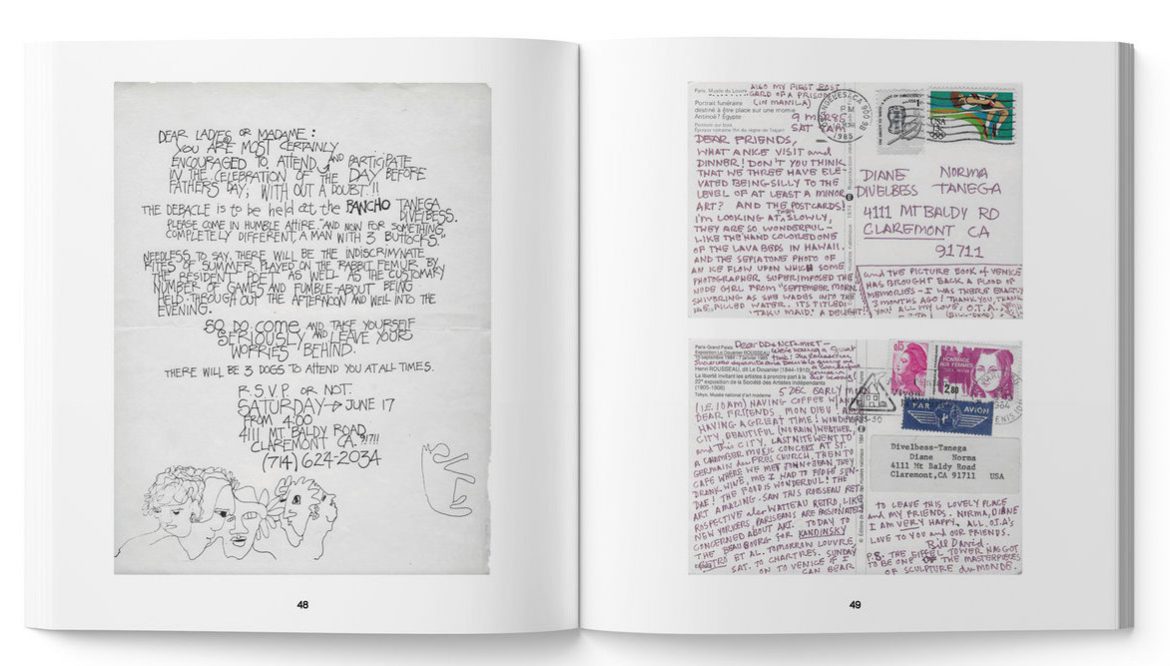Brooklyn-based Anthology Recordings are celebrating the music and art of American folk singer Norma Tanega in a new anthology I’m the Sky: Studio and Demo Recordings, 1964–1971 and art book – Try to Tell a Fish About Water.
Norma was born in 1939 in Vallejo, California to a multicultural Navy family. Her father, Tomas Tanega was Filipino and bandmaster in the US Navy and her mother, Otilda Tanega, was Panamanian.
According to the album notes, her parents often brought her to Los Angeles for piano lessons, and eventually, Tanega earned an MFA at Claremont College, where she studied classical composers like Aaron Copeland and George Gershwin. Amidst her academic pursuits, Tanega learned to play acoustic guitar and autoharp by following Joan Baez records and hanging out at the Folk Music Center, a music store and performance space in Claremont that exists to this day.
After college, Tanega landed in Greenwich Village in 1963 and became active in the coffee house scene and early protests against the Vietnam War. Working summers as a camp counsellor in the Catskill Mountains, the up-and-coming producer and arranger Herb Bernstein caught Tanega performing at the camp and introduced her to songwriter Bob Crewe. The trio found their first collaborative success in 1966 when Tanega’s “Walkin’ My Cat Named Dog” rocketed to #22 on the American and British charts (#3 in Canada).
The story behind her hit is that she lived in an apartment building in New York that didn’t allow dogs; instead, she owned a cat which she named “Dog” and took for walks.
As well as a number of international versions the song was also covered by Barry McGuire and also got the jazz treatment from Art Blakey on his album Hold On, I’m Coming.
On a 1966 tour of the UK, Norma met Dusty Springfield. Then, when visiting New York, Dusty became romantically involved with Norma who returned again to England where they lived together for five years. She also wrote and co-wrote a number of songs for Dusty.
While in London she recorded Snow Cycles in 1969 which never saw the light of day, and I Don’t Think it Will Hurt if You Smile, released in 1971.
I Don’t Think It Will Hurt If You Smile was unsuccessful and seen as too much of a shift from the pop-friendly sound of “Walkin’ My Cat Named Dog”. It apparently had “complicated meters, eccentric orchestrations, and riddling lyrics” that made it difficult to plug. That’s hard to believe after hearing tracks like the airy, psychedelic-tinged and slightly melancholic Beautiful Things or the tropicalia jazz-tinged Illusion. Even by modern standards, it’s an explorative album incorporating a broad range of influences. Sideman and British musician Mike Moran suggests that her high profile relationship with Dusty Springfield was also a factor in the album’s lack of success: “I think she undoubtedly was in Dusty’s shadow, which is quite an immense shadow at that point.”
While best known for her 1966 hit, it’s what she did after her short commercial success that seems to have left such an enduring impression and connected with many people today.
Following the end of her relationship with Dusty, she returned to California in 1972 having turned her back on the pursuit of commercial success. Listening to her music now it’s clear that she was ahead of her time.
By all accounts, she lived a happy and fruitful life back in California where she turned her focus to her visual arts, teaching ESL, and participating in her surrounding community of LGBTQ experimental artists.
The notes to the release add that she kept recording and performing music with a number of local groups as well. While Tanega, who passed away in 2019 at the age of 80, is essential to California’s legacy of folk and experimental music, she’s also essential to the canon of folk-rock writ large. Tanega left behind an exceptional catalog of music encapsulated in part on I’m the Sky, but, more than anything, she left an enduring expression of what it means to be free.
A short film was made in 2011 about Norma and her work with the intention of doing a longer documentary. Norma passed away before they could pick up the project again. The footage they did have was edited and uploaded in 2019 to celebrate Norma’s Supernova exhibition in Claremont, CA. The music in the first couple of minutes is Norma’s track “Air Hymn” from her album with John Zeretzke.
The Album I’m the Sky: Studio and Demo Recordings, 1964–1971 is available on Transparent light blue and baby pink splatter color vinyl (Limited to 500 copies worldwide) and Standard Black Vinyl. Both include a booklet containing liner notes and never-before-seen photos and ephemera.
Also on Double CD housed in jacket with two printed inner sleeves. Includes 28-page booklet containing liner notes and never-before-seen photos and ephemera.
To note: The digital listing shown on Bandcamp does not list all the tracks included in the CD and LP.
Try to Tell a Fish About Water
In the accompanying book, Try to Tell a Fish About Water, the bold colors and gestural immediacy of Tanega’s paintings are presented for the first time alongside unseen photos, illustrations, journal entries, and other ephemera. Featuring reflections and remembrances from Norma’s friends and collaborators collaged alongside the visual roadmap, Try to Tell a Fish About Water is a thoughtful exploration of Tanega’s art career and a testament to a life spent immersed in creativity.


The book is a softcover (150 pages) – 9 inches x 10 inches
More here: https://anthologyrecordings.bandcamp.com/album/i-m-the-sky-studio-and-demo-recordings-1964-1971
